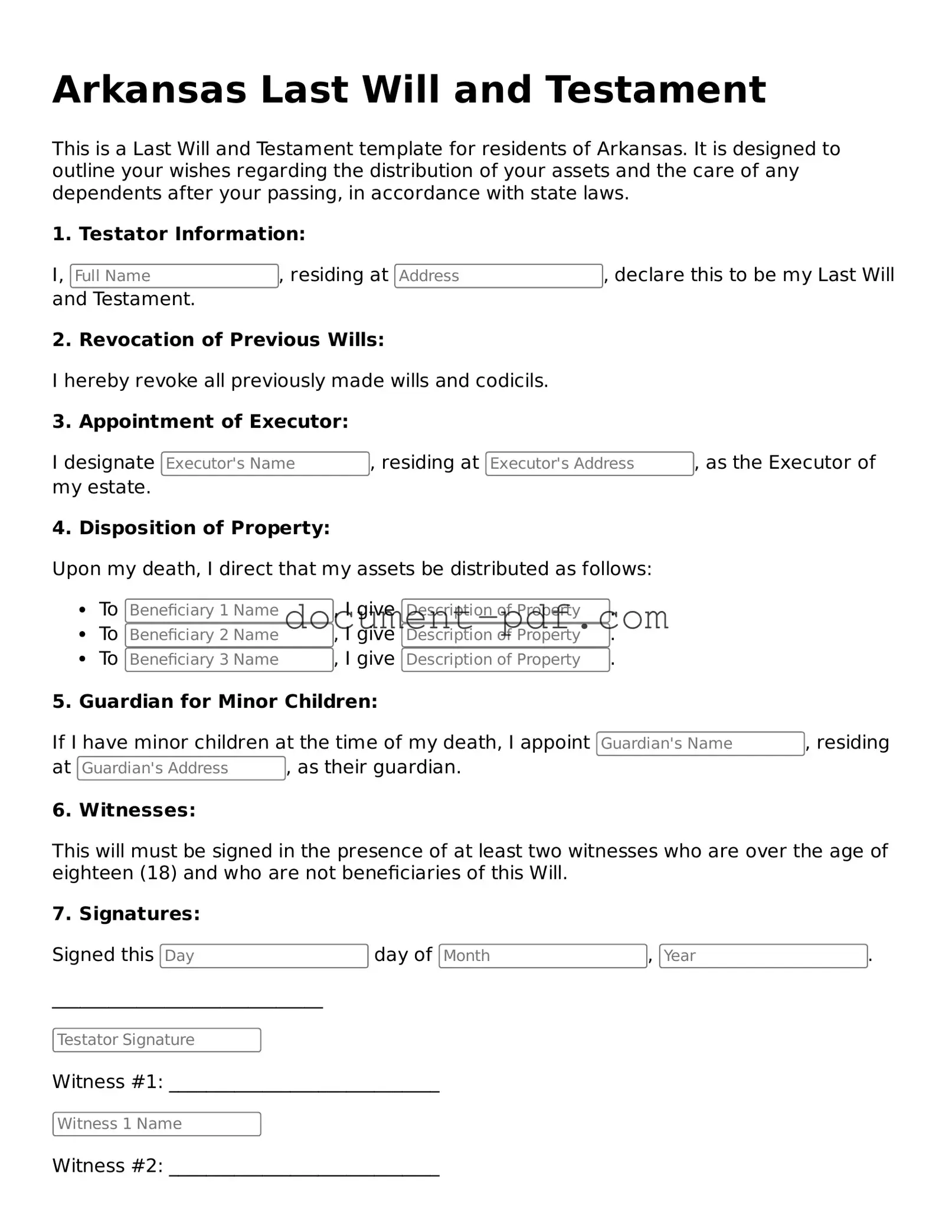Attorney-Verified Arkansas Last Will and Testament Template
A Last Will and Testament form in Arkansas is a legal document that outlines an individual’s wishes regarding the distribution of their assets after their passing. This essential tool ensures that a person's desires are honored and provides clarity to loved ones during a difficult time. For those looking to create or update their will, filling out the form is a vital step; click the button below to get started.
Access Last Will and Testament Editor Here

Attorney-Verified Arkansas Last Will and Testament Template
Access Last Will and Testament Editor Here
Finish the form without slowing down
Edit your Last Will and Testament online and download the finished file.
Access Last Will and Testament Editor Here
or
Click for PDF Form
